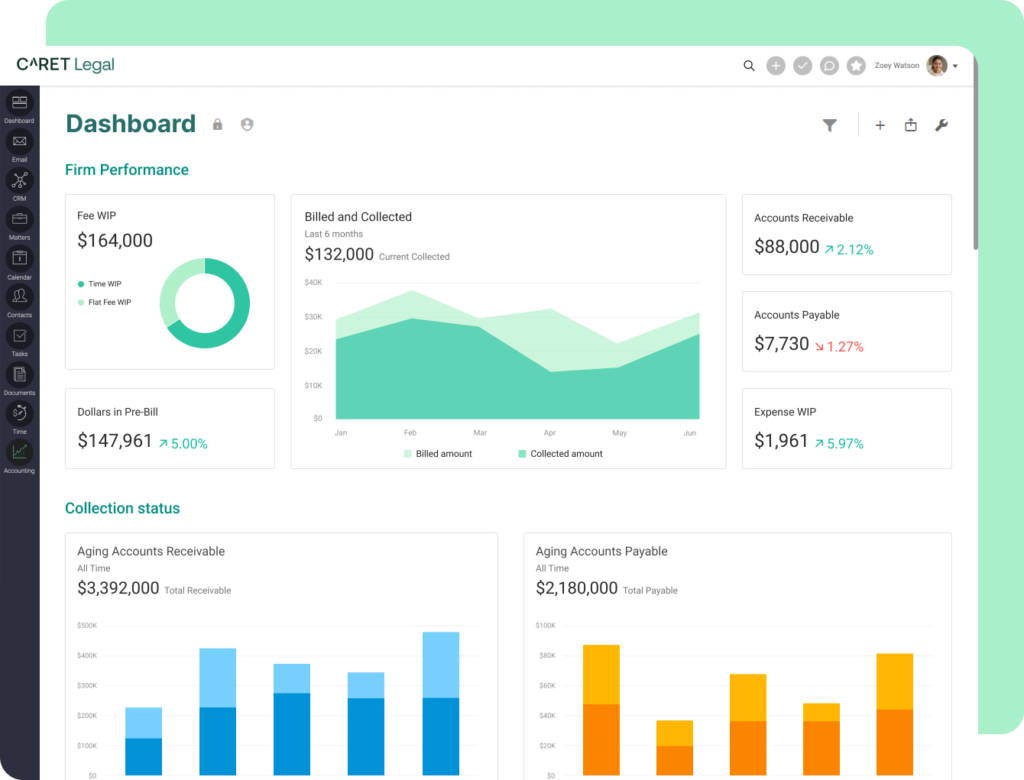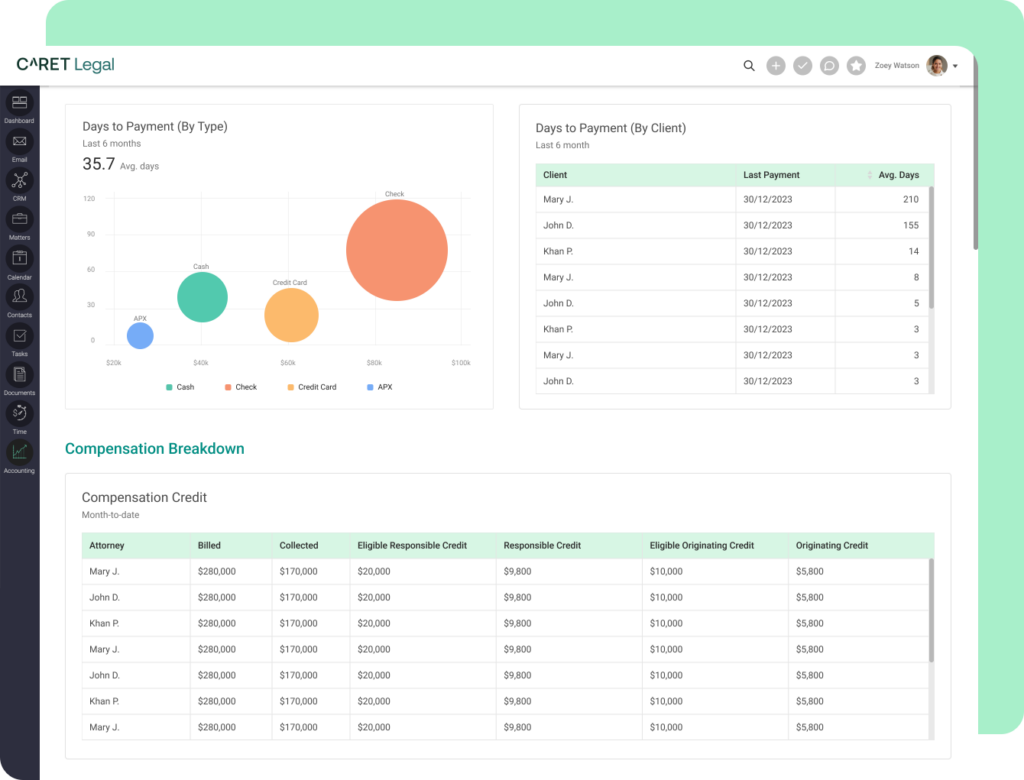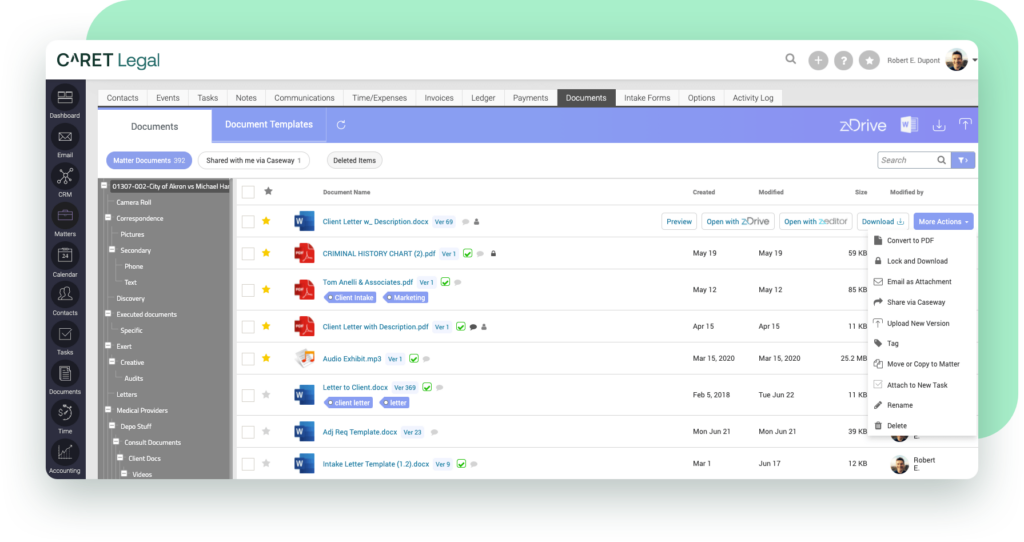Data-driven insights can streamline law firm operations, cut overhead, and improve resource management, paving the way for scalable growth.
The legal field is changing fast, and the firms that leverage data are positioning themselves for growth. By using insights from data, firms can discover new opportunities, streamline operations, and sharpen their competitive edge.
A good example is Delta Air Lines. They invested over $100 million in data analytics, which led to a 71% drop in mishandled baggage between 2007 and 2014. While law firms don’t deal with lost luggage, the same principle applies—data leads to better service and more efficient operations.
By embracing data analytics, law firms can achieve similar transformative results. Whether it’s predicting case outcomes, optimizing resource allocation, or personalizing client services, the potential for growth through data is immense. Let’s delve into how raw data can fuel law firm growth and how you can implement data-driven strategies to propel your firm forward.
How Hard Data Accelerates Law Firm Growth
The power of data lies in its ability to provide objective insights that can inform strategic decisions and drive continuous improvement. For law firms, this translates into enhanced client services and increased operational efficiency, both crucial for sustainable growth.
Enhancing Client Services for Growth
Data analytics allows law firms to gain valuable insights into client behavior, helping them deliver more personalized and effective services. By analyzing client interaction data, case histories, and industry trends, firms can better anticipate client needs, enhancing satisfaction and opening new revenue opportunities.

Modern law practice management software (LPMS) solutions, like CARET Legal, offer advanced client relationship management (CRM) features. These tools track client interactions throughout their journey, allowing firms to identify valuable leads and optimize business development efforts. Additionally, CARET Legal’s secure portal, facilitates document sharing and billing transparency, boosting client communication.
Tracking client interactions also enables firms to preemptively resolve issues, like response delays or billing disputes, improving client retention and building long-term relationships.
Boosting Operational Efficiency to Scale
Data-driven insights can streamline law firm operations, cut overhead, and improve resource management, paving the way for scalable growth. By analyzing key data such as time allocation, case progress, and financial metrics, firms can spot inefficiencies, improve workflows, and make smarter decisions about where to deploy resources.

LPMS solutions, like CARET Legal, offer time and expense tracking tools that automatically capture billable activities (emails, calls, document drafting) to ensure accurate billing and provide a clear breakdown of how time is spent across cases. This precision helps boost revenue while also revealing how resources are allocated.
CARET Legal’s reporting features deliver detailed insights on firm performance, from productivity to profit and loss, allowing firm leaders to make informed decisions on staffing and case assignments. The platform’s ability to track time over ten different ways, including automatic tracking, ensures no billable hours are missed.
Additionally, project management tools in advanced LPMS platforms help track case progress against milestones. Analyzing this data enables firms to address bottlenecks, predict delays, and stay ahead of issues that could affect client satisfaction and profitability. With financial management tools offering real-time reports, firms can optimize pricing strategies, improve workflows, and pinpoint areas for improvement, making operations more efficient without increasing costs.
Implementing Data-Driven Growth Strategies
While recognizing the value of data is an important first step, the real challenge lies in effectively implementing data-driven strategies. This involves not only adopting the right tools but also fostering a culture that embraces data-driven decision-making.
Harnessing Data Analytics Tools for Expansion
To fuel firm expansion, it’s important to leverage the right data analytics tools. Modern legal practice management solutions offer built-in analytics capabilities that can transform raw data into actionable insights.
CARET Legal, for instance, offers a suite of features designed specifically for law firms, including matter management, billing and accounting, and advanced reporting. The matter management dashboard in CARET Legal provides a bird’s eye view of financials, activity, and progress on each matter. This comprehensive overview allows firm leaders to quickly identify high-performing areas and those that need attention.
Document management systems within LPMS not only organize files but also provide valuable metadata. By analyzing document access patterns, version histories, and collaboration data, firms can gain insights into workflow efficiency and identify opportunities for process improvement or automation.

Conflict checking features in LPMS solutions do more than just prevent ethical violations. The data generated from these checks can provide insights into potential new practice areas or client sectors based on the frequency and nature of potential conflicts.
When selecting data analytics tools, consider how well they integrate with your existing systems and how easily they can scale with your firm’s growth. Look for tools that offer customizable dashboards, real-time reporting, and the ability to drill down into specific data points for deeper analysis.
Leadership must take an active role in promoting data use, ensuring that teams are trained and equipped to apply insights effectively
Cultivating a Data-Driven Growth Culture
Implementing data analytics is only the first step toward fostering a data-driven culture in law firms. Leadership must take an active role in promoting data use, ensuring that teams are trained and equipped to apply insights effectively. This starts with making data easily accessible and actionable for everyone.
CARET Legal’s customizable dashboards simplify this by providing role-based views to ensure that each team member engages with relevant metrics. Regularly reviewing these key metrics, along with celebrating data-driven successes, helps reinforce a culture of continuous growth and improvement. Over time, this shift transforms how decisions are made, leading to better outcomes firm-wide.
Overcoming Challenges to Achieve Growth Through Data
While the benefits of data-driven decision-making are clear, implementing such strategies is not without its challenges. Two key areas that require careful attention are data privacy and security, and maintaining data quality and integration.
Ensuring Data Privacy and Security for Sustainable Growth
In the legal industry, where confidentiality is paramount, concerns about data privacy and security are particularly acute. Firms must implement robust safeguards to protect sensitive client information while still leveraging data for growth.
LPMS solutions address these concerns with features like multi-factor authentication, role-based access controls, and encrypted client portals. Many also offer detailed audit logs that track all system access and changes, providing an additional layer of security and accountability.
CARET Legal addresses these concerns with features like optional two-factor authentication and a secure client portal with end-to-end, bank-grade encryption. The software also adheres to stringent security standards and is SOC 2 compliant.
Best practices for data security include:
- Implementing strong access controls and authentication measures
- Regularly updating and patching all systems
- Encrypting sensitive data both in transit and at rest
- Conducting regular security audits and vulnerability assessments
- Providing ongoing security training for all staff members
By prioritizing data security, firms can build trust with clients and protect their reputations, both of which are crucial for sustainable growth.
Maintaining Data Quality and Integration for Consistent Growth
The value of data-driven decisions depends on the accuracy and consistency of the data. As firms expand, managing data from multiple sources can become challenging. Advanced LPMS platforms, such as CARET Legal, help streamline this by acting as a centralized hub where data is validated at the point of entry, ensuring it remains consistent across all functions. This ensures smooth management of everything from contact information to document automation.
To maintain high data quality:
- Establish clear data entry protocols and train staff accordingly
- Regularly audit and clean your data
- Use data validation tools to catch errors at the point of entry
- Implement data governance policies to ensure consistency across the organization
- Regularly review and update data integration processes as your firm’s needs evolve
By focusing on data quality and integration, firms can ensure that their data-driven strategies are built on a solid foundation, leading to more reliable insights and better decision-making.
Start Making Data-Driven Decisions Today
As competition intensifies in the legal sector, data-driven decision-making has become essential for growth and success. By using data insights, law firms can enhance client services, improve operational efficiency, and implement strategies that foster sustainable growth.
Despite challenges like data security and quality management, the benefits of a data-driven approach far outweigh the risks. With the right tools and methods, firms can overcome these obstacles and unlock the full potential of their data.
CARET Legal offers a complete solution designed for law firms eager to leverage data for growth. From matter management to advanced reporting, CARET Legal empowers firms to collect, analyze, and act on their data. When you choose CARET Legal, you’re not just selecting a software tool—you’re partnering with a solution committed to your firm’s data-driven success.
Ready to transform your firm with the power of data? Start a free trial of CARET Legal today and take the first step towards data-driven growth and success.
